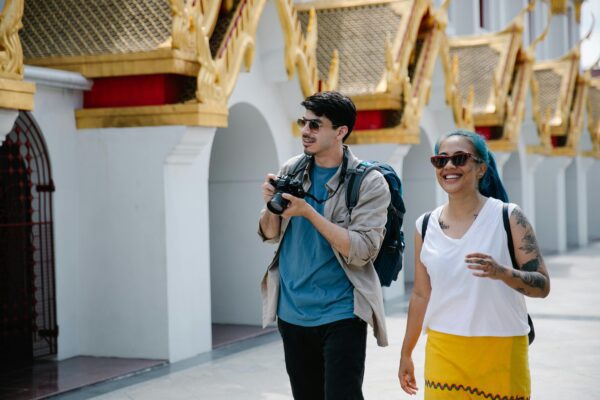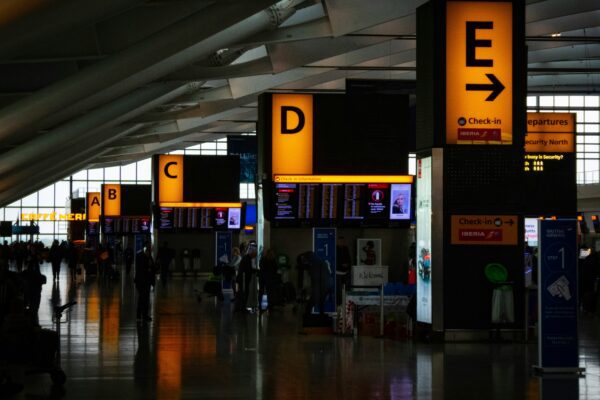Table of Contents

Travel scams are an unfortunate reality in many tourist destinations across the world. As more Indians venture abroad, it’s crucial to be aware of the types of travel scams that can ruin your trip. From fake taxi meters to counterfeit tickets, scammers have developed clever ways to exploit unsuspecting travelers.
One of the most common travel scams Indians should avoid abroad is the “friendly local” who offers unsolicited help and then demands payment later. These situations can escalate quickly and become intimidating. Always be cautious of overly eager strangers, especially in crowded places like train stations, airports, and tourist attractions.
Awareness is your strongest defense. Many travel scams are well-organized and can happen even in broad daylight. Another tactic includes staged fights or performances to divert your attention. While you are watching or filming the scene, your pockets might be getting picked. Another subtle scam involves being offered a bracelet or trinket, which is then placed on your wrist without your consent, and payment is demanded. It is important for Indians to stay assertive and walk away from these interactions.
Additionally, travel scams Indians should avoid abroad also include pickpockets working in pairs or groups. They distract you with questions or pretend to be fellow tourists needing help. Their accomplices use the opportunity to access your valuables. Carrying a crossbody bag and keeping wallets in front pockets can act as preventive measures. Many travelers fall for these ploys due to fatigue or unfamiliarity with their surroundings. Keep a mental note to always stay alert, especially in popular tourist spots.
Make it a habit to secure your belongings before taking photos or stopping to admire the view. Being informed about these travel scams allows you to preemptively protect yourself. Don’t let politeness override your instincts—if something feels off, it probably is. Trust your gut and avoid unnecessary interaction with overfriendly strangers. Being aware and prepared is your first and strongest line of defense against travel scams. The more familiar you are with the common tricks used by scammers, the less likely you are to become a target. Remember, vigilance and caution are essential tools for Indians to ensure a safe and enjoyable journey abroad.

Avoiding Fake Taxi and Transportation Scams
Fake taxis are another issue that can impact Indians traveling abroad. Often found outside airports or tourist hotspots, these taxis operate without meters or have rigged meters that overcharge customers. To avoid falling for this travel scam, always use authorized transportation services. Ride-hailing apps like Uber or local equivalents are usually safer. If you must take a taxi, agree on a price before starting your journey or insist on using the meter.
Save the taxi company’s number or ask your hotel to recommend a trusted service. This practice can drastically reduce your vulnerability to travel scams. A common travel scam Indians should avoid abroad includes taxi drivers taking longer routes to hike the fare. Some may even pretend the meter is broken. Insist on seeing the fare chart or decline the ride altogether. In countries where language is a barrier, it helps to write down your destination or use a GPS app to follow the route in real-time.
Don’t hesitate to speak up if the route seems suspicious. Also, avoid sharing taxis with strangers unless it’s an official shared service. Some drivers may collude with passengers to scam you. Other scams include being told your hotel is closed or overbooked, and then being taken to a different place where the driver receives a commission. Always call your hotel to confirm before accepting such information. Indians traveling abroad should also be cautious when arriving at night, as this is when fake taxis are most active.
If you’re landing late, pre-book a transfer through your hotel or a reliable service. Another smart travel tip is to check if the vehicle has proper identification, such as a license number or official logo. These steps help in verifying the legitimacy of the taxi. Travel scams can be subtle, but taking precautions goes a long way. By staying informed, asking the right questions, and using technology wisely, Indian tourists can ensure safe and fair transportation during their trips.
Travel scams Indians should avoid abroad often involve urgency or confusion, which scammers exploit. Don’t rush—take your time to choose safe transport options. Being methodical and prepared minimizes your chances of falling for these traps, making your travel experience more enjoyable and stress-free.

Staying Safe from Fake Accommodation Listings and Rental Scams
Booking accommodations online is convenient, but it opens the door to a variety of travel scams. Indians traveling abroad often become victims of fake rental listings, non-existent hotel reservations, or fraudulent property managers. These travel scams Indians should avoid abroad frequently start with an enticing listing on lesser-known websites offering luxurious rooms at suspiciously low prices.
The moment payment is made, the listing disappears, and there’s no trace of the property. To protect yourself, always use reputable booking platforms like Booking.com, Airbnb, or Agoda. Check for verified reviews and cross-check photos. Contact the property directly and confirm details like location, amenities, and check-in procedures. Never transfer money directly through wire services or third-party apps unless the platform has secure payment protection.
One notable travel scam involves someone posing as a property owner or manager who contacts you after booking, requesting a security deposit via an unsecured channel. Once paid, communication ceases, and you’re left without accommodation upon arrival. Indians must be extra cautious in cities popular with tourists, such as Paris, London, or Rome, where such scams are rampant.
Another scam includes arriving at the destination only to find out the address is fake or the property is already occupied. Save all correspondence and receipts and make copies of your reservation details. When in doubt, contact customer support on the booking platform before making any payment. It’s also wise to confirm if the property is registered for rentals in that city or region.
In countries with strict rental laws, illegal rentals are often pulled down abruptly, leaving guests stranded. Travel scams like these not only result in financial loss but also affect your overall travel experience. A good tip for Indians is to keep a list of nearby alternative hotels in case your booking falls through. Also, notify your embassy or consulate if you believe you’ve been scammed. They can assist in finding emergency accommodation. Remaining vigilant and doing thorough background checks is essential to avoid accommodation-related travel scams. Remember, if a deal looks too good to be true, it probably is.

Avoiding Local Tour Scams: Enjoy Authentic Experiences Safely
Local tours are a fantastic way to explore new destinations, but they can also be a hotspot for travel scams targeting Indian tourists abroad. Unscrupulous operators may offer tours at extremely low prices or promise exclusive experiences that turn out to be disappointing or fake. To avoid falling victim to such scams, always book tours through reputable agencies or your hotel’s concierge service. Avoid accepting tour offers from strangers at airports, train stations, or popular tourist spots, as these are often fronts for scams.
A common scam involves tours that are either significantly shorter than advertised or don’t include the promised attractions. Sometimes, tourists find themselves dropped off in unauthorized shops where they’re pressured to buy souvenirs at inflated prices, with tour guides receiving commissions. Be wary of tours that heavily focus on shopping stops rather than sightseeing.
Another trick involves fake “official” tour guides who may approach you with badges or uniforms but have no valid licenses. Always ask for proper identification and verify their credentials if possible. Booking online through verified platforms and reading recent reviews can help ensure authenticity.
For Indians traveling abroad, especially in countries like Thailand, Spain, or Egypt, it’s advisable to research the typical cost and itinerary of tours beforehand. Avoid paying large amounts upfront; instead, pay after the tour if you’re satisfied. If you’re joining group tours, keep your belongings secure and be cautious during any photo stops or crowded areas, as scammers sometimes operate nearby.
Remember, a genuine tour guide aims to provide a safe, enjoyable experience without pressure or deception. If a deal feels suspiciously cheap or the guide seems overly pushy, politely decline and seek alternatives. Doing so protects your wallet and helps you enjoy authentic cultural experiences without stress.

Beware of Currency Exchange Scams: Protect Your Money Abroad
One of the most common travel scams Indians face abroad involves currency exchange. Tourist hotspots often have unofficial or unauthorized currency exchangers offering better rates, which can be tempting. However, these can be fronts for scams that result in receiving counterfeit bills, unfair exchange rates, or hidden commissions.
To avoid these pitfalls, always use official currency exchange counters at airports, banks, or authorized exchange bureaus. Before exchanging money, research the current exchange rate so you know what to expect. Be cautious of places that refuse to show their rates upfront or pressure you to exchange large amounts immediately.
A frequent scam involves receiving old, damaged, or fake currency notes that may be difficult to use or exchange back. Always inspect your bills carefully before completing the transaction. If possible, ask for smaller denominations to avoid issues later.
ATMs are generally safer for withdrawing local currency, but make sure to use machines located inside banks or reputable establishments. Avoid standalone ATMs in isolated or poorly lit areas to reduce the risk of card skimming or theft.
Indians traveling abroad should also be wary of street money changers who promise unbeatable rates but use sleight of hand to shortchange you. If you find yourself in a tight spot needing urgent cash, use your hotel’s front desk or bank services instead.
By staying alert and using official channels, you can minimize the risk of losing money to currency exchange scams. Carrying a small amount of local currency and using cards wisely also helps maintain financial security during your travels.
Frequently Asked Questions
1. What are the most common travel scams Indians face abroad?
Common scams include fake taxis, counterfeit accommodation listings, pickpocketing, unsolicited “friendly locals” demanding money, and currency exchange fraud.
2. How can I avoid fake taxi scams while traveling?
Use authorized taxis or ride-hailing apps, agree on fares before starting the ride, insist on meter usage, and avoid taxis without proper identification.
3. What should I do if someone offers me a free bracelet or trinket?
Politely refuse and walk away immediately. If they place it on your wrist, do not accept payment demands and remove it as soon as possible.
4. How can I protect my belongings from pickpockets?
Carry a crossbody bag, keep valuables in front pockets, stay alert in crowded places, and avoid distractions from strangers or staged performances.
5. Are online accommodation bookings safe?
They can be, if booked through reputable platforms with verified reviews. Avoid direct payments outside the platform and confirm all details with the property.
6. How can I verify if a local tour guide is legitimate?
Ask for official identification, check reviews, book through trusted agencies or your hotel, and avoid tours offered by strangers in public places.
7. What should I know about currency exchange abroad?
Always use official exchange counters or banks, know the current rates, inspect bills carefully, and avoid street money changers with suspicious offers.
8. How can I avoid being scammed during local tours?
Research the tour details beforehand, avoid tours with excessive shopping stops, don’t pay large amounts upfront, and keep your belongings secure.
9. What precautions should I take at airports to avoid scams?
Use authorized transport, be wary of strangers offering help, keep your documents and money secure, and confirm accommodation details independently.
10. Who can I contact if I fall victim to a travel scam abroad?
Contact your country’s embassy or consulate for assistance, report the incident to local authorities, and notify the booking platform or service provider involved.



